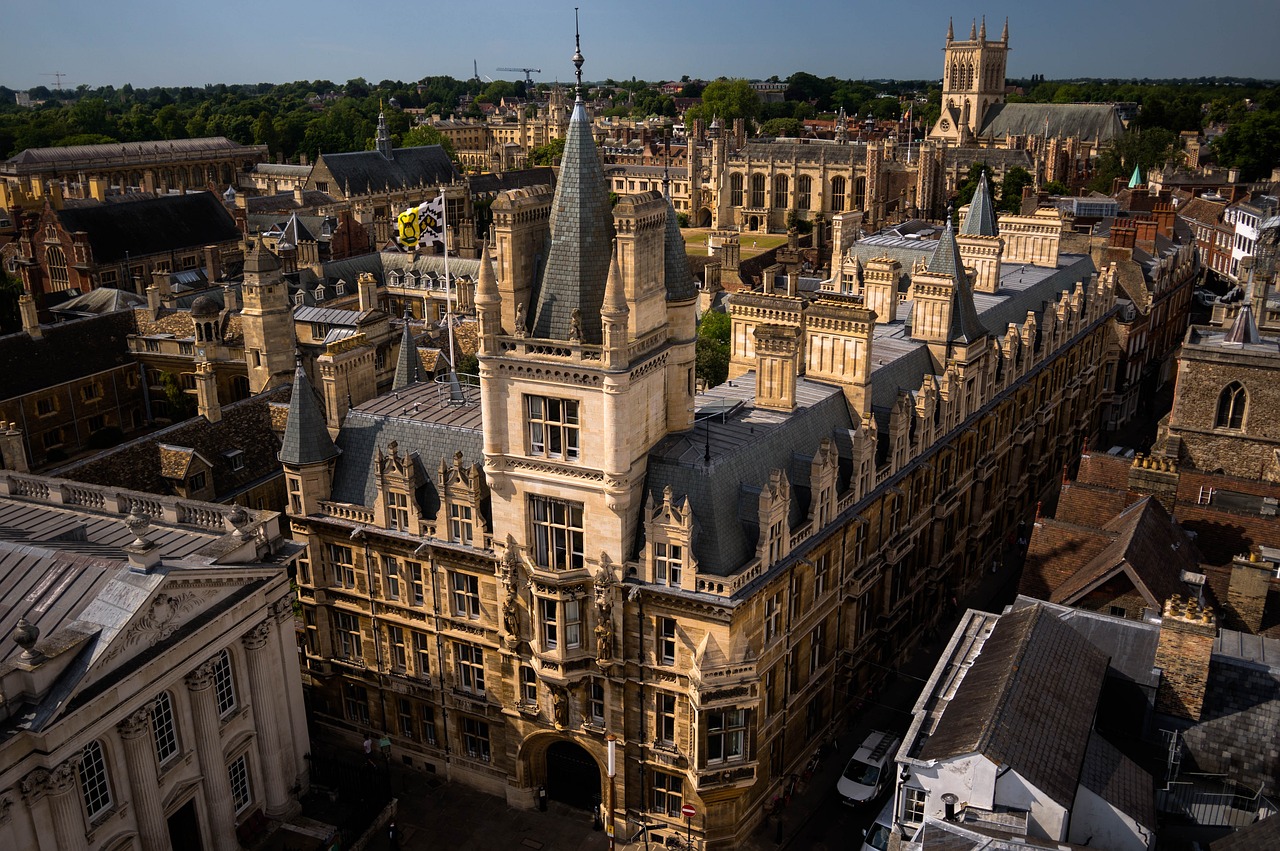If you’re looking for a way to study in Canada without breaking the bank, look no further than Canada’s educational institutions. Universities and colleges in Canada are relatively affordable for Nigerian students, especially when compared to their counterparts in the United States and the United Kingdom. Plus, Canadian schools offer a wide range of courses and programs to choose from. You can also find top-quality degrees and programs without spending a fortune.
In addition, Canada is a safe place to study, with low levels of crime and violence. Nigerian students should be aware, however, that the cost of living in Canada is high, and they will need to budget carefully if they are planning on studying full-time. Hence, we compiled this article on ways to study in Canada without breaking the bank.

Table of Contents
- 1 What are some ways to study in Canada without the breaking bank?
- 2 Financial aid for Nigerian students studying in Canada
What are some ways to study in Canada without the breaking bank?
There’s a popular misconception that studying abroad is out of reach for most students. However, studying in Canada as a Nigerian does not have to be prohibitively expensive. In Canada, you can study for free or for very little money. To learn how to read this post.
We’ve compiled a list of suggestions to assist you to keep your studies in Canada on a shoestring budget.
- Consider enrolling in a low-cost or no-cost university.
- Instead of dining out every day, make your own meals.
- Secondhand stores are a great place to go shopping. These establishments have a lot of good goods for a lot less money.
- Don’t succumb to peer pressure to purchase items and subscriptions (such as gym memberships, salsa, etc.) that will wreak havoc on your finances.
- Whenever possible, walk on your commute.
- When possible, take advantage of student discounts.
The following is a list of five low-cost Canadian universities in Canada.
- Memorial University of Newfoundland ( 2,150 – 11,460 CAD/year)
- University of Regina ( 1,715 – 20,050 CAD/year )
- Royal Roads University ( 3,750 – 27,600 CAD/year )
- University of Saskatchewan ( 4,110 – 24,000 CAD/year )
- Athabasca University (1,625 – 17,250 CAD/year )

Financial aid for Nigerian students studying in Canada
The following aids will assist you to study in Canada without breaking the bank:
#1. Loans to students
Applicants must prove sufficient means to pay the cost of school as well as living expenses in Canada in order to get a study permit for Canada. Student loans are a sort of loan aimed to assist students in paying for their post-secondary education, such as tuition, books, and supplies, as well as living expenses. Money borrowed as a student loan must be repaid, plus interest, at some point in the future — usually after graduation.
The Canadian Student Financial Assistance Program (CSFAP) or a commercial bank can help you get a student loan. What you need to know about each choice is as follows:
Student loans from banks
Banks, such as RBC, can give student loans. Bank loans, unlike the Canadian Student Financial Assistance Program, are not restricted to middle- and low-income individuals. Bank student loans must be repaid over a set length of time and may require a guarantor.
Canadian Student Financial Assistance Program (CSFAP)
The Canadian Student Financial Assistance Program (CSFAP) is a federal program that provides revolving loans and non-revolving grants to help Canadian students who are citizens, permanent residents, or designated protected persons pay for their post-secondary education. These loans, which are funded in collaboration with provinces and territories, are accessible to full-time and part-time students from middle- and low-income families.
#2. Grants and Scholarships
Scholarships and grants are financial aid provided by institutions, organizations, governments, or individuals to assist international students in financing their studies.
Students in Canada can apply for a wide variety of scholarships and prizes. Scholarships and grants do not need repayment and might be one-time or recurring annual payments for the duration of your post-secondary study.
Academic achievement or achievements in sports, philanthropy or the arts are frequently related to scholarships and grants. To renew the scholarship or grant each year, specific requirements (such as a grade point average) may be required.
Scholarships and grants are available from a variety of sources, including postsecondary schools, nonprofit foundations, community organizations, government agencies, and private businesses.
To find out which scholarships and awards you can apply for and have enough time to prepare your application, do your research far ahead of your anticipated start date. Studentawards.ca and scholarshipscanada.com are two excellent sources of information. RBC also contributes to a number of Canadian student scholarships.
The following are some of the most important features of scholarships or grants:
- Scholarships and grants are typically offered for exceptional academic or extracurricular achievements, volunteer experience, and professional successes, and may even be awarded by specialized research topics, particularly for graduate students.
- A scholarship or grant is not repaid.
- Most times, you’ll need to fill out a form. However, it may be automatically granted to individuals who are eligible based on particular criteria – this form of scholarship is known as an admission scholarship. Many Canadian universities are known to provide international students entry scholarships, so examine the websites of the colleges you’re interested in.
- Each scholarship or award may have its own application process.
#3. Financial Assistance
Bursaries are financial aid provided by universities and colleges in Canada to international students. Bursaries are awarded to students based on their financial need rather than their achievements or merit. They’re usually one-time payments that don’t have to be repaid, and they’re offered by nonprofit organizations or private businesses. To allow yourself ample time to apply for bursaries, do your research far ahead of your start date.
Bursaries’ main features include:
- Students must normally fill out an application, go through a needs assessment, and present information about their own or their parent’s income to verify their financial condition.
- You do not have to repay a bursary, like a scholarship or a grant.
Individual school or university websites usually include information on bursaries. - The major purpose of a bursary program is to complement students’ principal sources of income, hence you must typically be registered as an international student at the institution to apply for one.
Credit cards for students
A line of credit is a type of loan that allows you to borrow money on a regular basis up to a predetermined amount. If you have a line of credit, you can borrow money, pay some of it back, and then borrow again. A student line of credit is designed to assist with post-secondary education expenses such as tuition, books, and supplies, as well as living expenses. You only pay interest on the money you actually borrow when you have a line of credit.
For students who need financial flexibility but don’t know if they’ll need a substantial loan, student lines of credit can be a smart alternative. You won’t end up paying interest on a hefty debt that you won’t be able to repay.
Financial organizations and banks, such as RBC, give students lines of credit. To guarantee your line of credit, you may need a cosigner, and you’ll almost certainly need to show confirmation that you’re a full- or part-time student at a recognized post-secondary university.
The following are some of the most important features of a student’s credit lines:
- Only the money you borrowed must be repaid. Only the amount borrowed is subject to interest, not the total amount owed (which is the case for loans). If you have a $10,000 CAD line of credit and borrow $3,000 CAD, you must repay $3,000 CAD plus interest, not $10,000, CAD.
- Interest rates on private student loans may be lower than those on government student loans. However, unlike a student loan, you’ll have to start paying interest as soon as you draw money from a student line of credit.
- You can begin repaying your debt at any moment, even while you are still enrolled in school.
- The bank will set the amount for your line of credit based on your course, the school or academic institution that offers the program, living expenses, credit history, and ability to repay the money you borrow.
#5. Individual educational institutions’ financial aid
Many Canadian universities and colleges offer separate financial aid options for Nigerian students through their websites. For more information on available options and the application process, visit individual institution websites or contact the institution directly.
#6. Financial aid from the government
Students studying in Canada can receive financial assistance from the federal and provincial governments. Scholarships, loans, and grants based on financial need, exceptional abilities, special status, academic merit, and other qualities are available. Keep in mind that COVID-19 has disrupted several federal student aid programs, and interim solutions have been put in place to make it simpler for students to access post-secondary education.
#7. Work-study balance
Working while studying in Canada is another method to defray some of the costs of your education. You won’t have to worry about paying back loans or paying interest costs if you go this path. Before applying for a job, newcomers should double-check if they are legally permitted to work on or off campus.
Budgeting tips to assist you in creating and sticking to a budget
- You’ll need to learn to build and stick to a budget regardless of how you pay for your education in Canada. To create a student budget, follow these steps:
- To figure out how much money you have, calculate your net income. Any financial aid you’re receiving should be included here.
- Make a list of all of your monthly spending.
- Sort your costs into fixed and variable categories, or, to put it another way, requirements and wants.
- Calculate the cost of each expense on a monthly basis.
- To assess if you can make ends meet, add up these costs and compare them to your net income.
- Keep track of your receipts and expenses in order to stick to your budget. Set aside some time each week or month to compare your actual costs to your budgeted prices. It’s critical to change your budget to reflect reality if there’s a discrepancy.
You can take advantage of a variety of financial tools to help you achieve your educational and career goals. Consult a financial expert to figure out which solutions are best for you: To discuss your options, schedule a phone consultation with an RBC Advisor.
Also Read: Study in Canada from Nigeria – Requirements, and Costs
Frequently Asked Questions
Check out some of the frequently asked questions by Nigerian students looking to study in Canada:
How much bank is required to study in Canada?
| Immigrants | Annual funding requirement (doesn’t include tuition) | Monthly funding requirements (additional to the tuition) |
| You (the student) | CAN$10,000 | CAN$833 |
| First family member | CAN$4,000 | CAN$333 |
| Every additional accompanying family member | CAN$3,000 | CAN$255 |
How much bank statement is required to study in Canada?
For a Canadian student, visa, how many months’ worth of bank statements are required? If you’re applying for a student visa in Canada, you’ll need to show that you have enough money to cover your tuition and living costs. A bank statement from the previous four months is frequently requested.
Can I study in Canada if I am broke?
Scholarships are one of the most effective ways to study abroad if you are impoverished. There are numerous scholarships available, and no matter your major, background, destination, or financial circumstances, there is a scholarship waiting for you.
What is the cheapest city to live in Canada?
Below is a list of affordable cities to live in Canada:
- Sherbrooke is a city in Quebec.
- Quebec City
- New Brunswick’s capital is Saint John
- Laval, Quebec
- Halifax, Nova Scotia
- Montreal, Quebec
- Lethbridge, Alberta
- Abbotsford, British Columbia
How a Nigerian student can study in Canada?
There are a few ways that a Nigerian student can study in Canada. One way is to apply for a study permit, which allows you to attend a Canadian school or university. You must meet certain requirements, such as having a valid passport and proving that you have enough money to support yourself while in Canada.
Conclusion
If you’re looking for how to study in Canada without breaking the bank, there are a variety of options that will help you establish the career you want while still giving you the same level of support and instruction as more expensive colleges. Some of the most prestigious colleges in specific fields are the most affordable, while still allowing you to obtain a study permit and work in Canada. Also, check out Canada Visa Requirements for Nigerian Students









